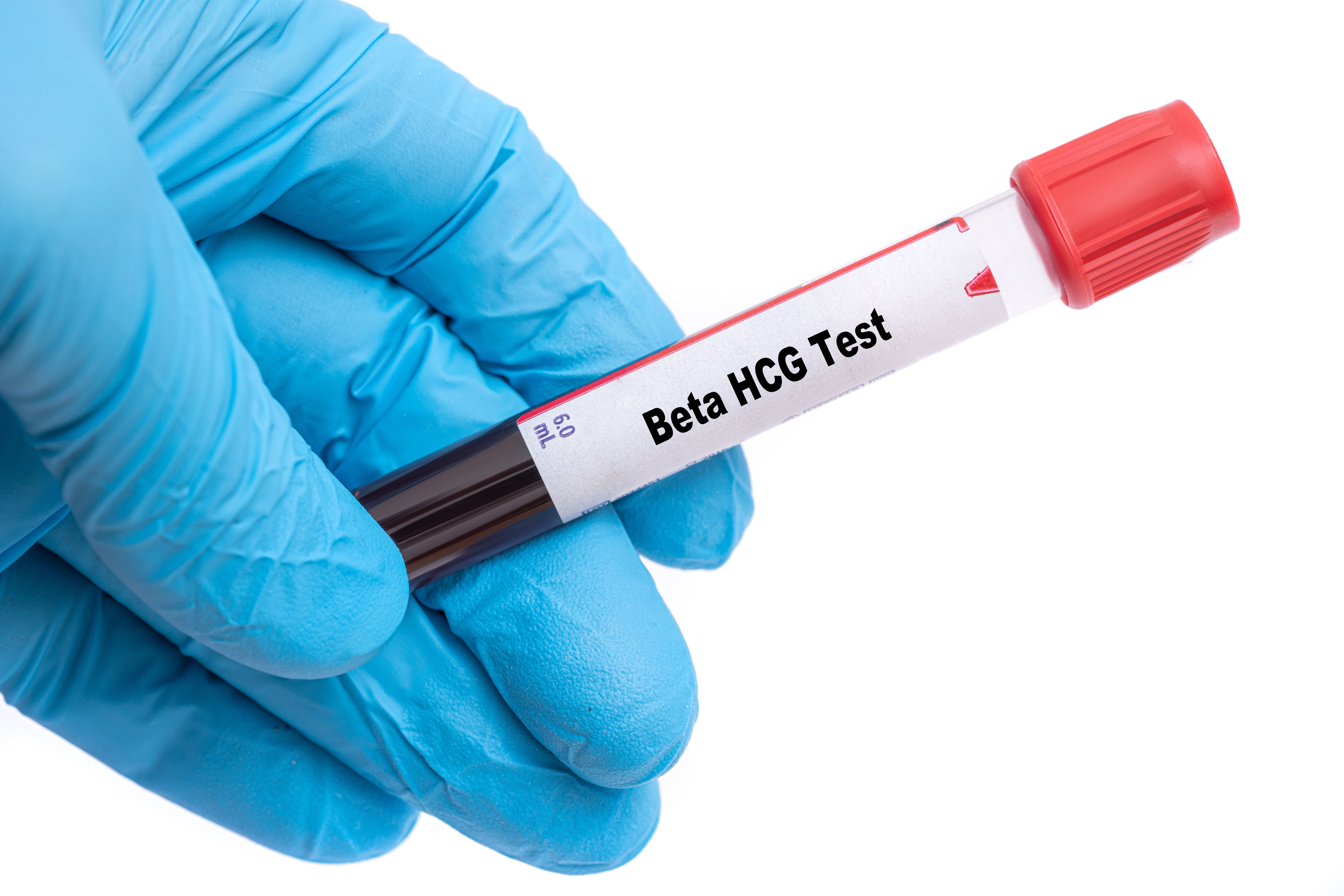General Health
Troponin Test – Normal Range, Purpose, Procedure, and Results Interpretation
6 min read
By Apollo 24|7, Published on - 21 May 2025
Share this article
0
0 like
.jpg?tr=q-80)
The troponin test is a key diagnostic tool used by healthcare professionals to measure troponin proteins in the bloodstream. These proteins are released when the heart muscle experiences damage, making the test crucial in identifying heart-related issues, particularly in suspected heart attacks. High levels of troponin in the blood indicate potential injury to the heart and often require urgent medical attention.
This test is widely utilised in cardiology and emergency settings to evaluate the severity of heart conditions and to guide appropriate treatments. It is quick, reliable, and easy to perform, requiring only a blood sample. For individuals with symptoms like chest pain or other signs of heart problems, the troponin test provides essential information that supports accurate diagnosis and timely care.
Purpose of the Troponin Test
The primary purpose of the troponin test is to detect damage to the heart muscle. Troponin proteins, specifically troponin T and troponin I, are released into the blood when the heart muscle is injured. The test helps achieve the following:
- Diagnosing Heart Attacks: Troponin levels rise within a few hours of heart muscle injury, making the test a reliable way to confirm or rule out a heart attack.
- Evaluating Chest Pain: When someone reports chest discomfort, the test helps determine whether the cause is related to heart damage.
- Monitoring Ongoing Heart Conditions: In people with heart problems like myocarditis or coronary artery disease, the test helps track how the condition is affecting the heart over time.
Through early detection of heart problems, this test plays a significant role in reducing complications and improving survival rates.
How to Prepare for a Troponin Test?
Preparation for a troponin test is minimal, as it is a simple blood test. However, there are a few points to keep in mind to ensure accurate results:
- Follow Doctor’s Instructions: While fasting is typically not required for a troponin test, your healthcare provider may give specific instructions based on your condition.
- Inform About Medications: Share a list of all medications, supplements, or herbal products you are taking, as some substances can influence test results.
- Avoid Physical Strain: Heavy physical activity before the test may affect troponin levels, so avoid intense workouts prior to testing.
- Alcohol Intake: Refrain from consuming alcohol before the test to ensure results are not skewed.
By following these basic preparation steps, you can help ensure the troponin test provides accurate and actionable information.
Procedure for Troponin Test
The troponin test is quick and straightforward. Here's how the procedure is carried out:
- Blood Collection: A healthcare professional cleans the area, usually the inside of your elbow, with antiseptic. A needle is then inserted into a vein to draw blood.
- Sample Handling: The blood sample is collected into a vial or test tube for laboratory analysis.
- Lab Analysis: The sample is sent to a laboratory, where troponin levels are measured. Specialised equipment is used to quantify the protein levels in the bloodstream.
- Timeframe: Results are typically available within a few hours, although urgent cases, like suspected heart attacks, may be processed faster.
Most patients can resume normal activities immediately after the test, though some may experience minor discomfort at the needle site.
Troponin Test: Results Interpretation
Interpreting the results of a troponin test involves comparing the measured levels of troponin proteins to standard reference ranges. Here’s what the results might indicate:
- Normal Troponin Levels: If troponin levels are within the standard range, it suggests no significant damage to the heart muscle.
- Elevated Troponin Levels: Raised levels usually point to heart muscle injury, such as in the case of a heart attack or severe stress to the heart.
- Gradual Changes: Doctors often monitor troponin levels over time to observe patterns. A rapid increase can indicate an ongoing cardiac event, whereas a steady decrease may show recovery.
Interpreting results is crucial in diagnosing heart-related conditions and guiding effective treatment plans.
Troponin Test Normal Ranges
The troponin test normal range can differ slightly between laboratories due to variations in testing methods. Generally, the normal range troponin test report indicates the following values:
- Troponin I: Less than or equal to 0.04 ng/mL
- Troponin T: Less than or equal to 0.01 ng/mL
For high-sensitivity tests, the troponin test normal range in female and male patients is defined as:
- High-Sensitivity Troponin I:
- Female: Less than or equal to 15 ng/L
- Male: Less than or equal to 20 ng/L
- High-Sensitivity Troponin T:
- Female: Less than or equal to 10 ng/L
- Male: Less than or equal to 15 ng/L
Results exceeding these ranges suggest potential damage to the heart muscle, but even levels within the normal range may warrant further investigation depending on symptoms and medical history.
Abnormal Troponin Levels
Abnormal troponin levels are often a sign of heart muscle damage. They can be caused by a variety of conditions, including:
- Heart Attack: The most common cause, where blood flow to the heart is blocked, leading to tissue damage.
- Cardiac Surgery or Procedures: Troponin levels may rise after medical procedures affecting the heart.
- Myocarditis: Inflammation of the heart muscle, often due to infections or autoimmune diseases.
- Heart Failure: A weakened heart muscle can lead to elevated troponin levels.
- Stress-Induced Heart Damage: Conditions such as Takotsubo cardiomyopathy can cause troponin elevation.
- Kidney Disease: Reduced kidney function can lead to higher troponin levels without direct heart injury.
Doctors use troponin test results alongside other diagnostic tools to pinpoint the cause of elevated levels and recommend appropriate treatment.
Managing Abnormal Troponin Test Results
If your troponin levels are above the normal range, your doctor will help determine the cause and create a plan to address it. Management typically includes:
- Confirm the Diagnosis: Elevated troponin levels are assessed alongside clinical symptoms, medical history, and other diagnostic tests like ECGs to confirm the presence of heart-related issues.
- Identify the Cause: While heart attacks are the most common cause, other conditions like myocarditis, pulmonary embolism, or chronic kidney disease can also lead to abnormal troponin levels. Identifying the root cause is crucial.
- Immediate Treatment: If a heart attack is confirmed, emergency interventions such as angioplasty, medications, or surgery may be required to restore blood flow and minimise damage.
- Monitor and Follow-Up: Regular monitoring of troponin levels helps track the progress of treatment and detect any recurring issues.
- Address Non-Cardiac Causes: For conditions unrelated to the heart, such as sepsis or severe hypertension, treatment focuses on managing the primary condition to reduce stress on the heart.
- Lifestyle Modifications: Patients are often advised to adopt heart-healthy habits, including a balanced diet, regular exercise, stress management, and avoiding smoking or excessive alcohol consumption.
Conclusion
The troponin test is a quick and essential tool used to detect heart muscle damage, often helping diagnose heart attacks in urgent situations. Requiring only a blood sample, it provides reliable information to guide treatment, monitor heart conditions, and evaluate treatment effectiveness. Early detection through this test supports timely care, improved outcomes, and personalised treatment.
General Health
Frequently Asked Questions
What are normal troponin levels?
What are normal troponin levels?
What does a normal range troponin test report mean?
What does a normal range troponin test report mean?
What is the troponin test normal range in female patients?
What is the troponin test normal range in female patients?
What is the troponin test normal range in male patients?
What is the troponin test normal range in male patients?
Why are normal troponin levels different for males and females?
Why are normal troponin levels different for males and females?
What do high troponin levels indicate?
What do high troponin levels indicate?
Are troponin levels elevated temporarily after exercise?
Are troponin levels elevated temporarily after exercise?
Are the troponin test normal ranges the same across all testing methods?
Are the troponin test normal ranges the same across all testing methods?
Can troponin tests alone diagnose a heart attack?
Can troponin tests alone diagnose a heart attack?
Why is understanding the troponin test normal range important?
Why is understanding the troponin test normal range important?
Leave Comment
Recommended for you

General Health
A Pill To Replace Exercise: Scientists Discovered A Drug That Mimics Effects Of Sports
To help those who cannot exercise enough due to medical reasons, researchers have identified a drug that can replicate the effect of exercising on the body.

General Health
Which Diseases Can Be Diagnosed With A Urine Test?
The article focuses on the types of urine tests and the diseases they may help diagnose.

General Health
Missed Your Periods? Take a Pregnancy Test (Beta hCG Test) to Confirm
Missed your periods? A Beta hCG test can confirm pregnancy early and accurately. Learn when to take the test, how it works, and what your results mean.
Subscribe
Sign up for our free Health Library Daily Newsletter
Get doctor-approved health tips, news, and more.
Visual Stories

The Best Exercises for Controlling Blood Sugar Levels
Tap to continue exploring
Recommended for you

General Health
A Pill To Replace Exercise: Scientists Discovered A Drug That Mimics Effects Of Sports
To help those who cannot exercise enough due to medical reasons, researchers have identified a drug that can replicate the effect of exercising on the body.

General Health
Which Diseases Can Be Diagnosed With A Urine Test?
The article focuses on the types of urine tests and the diseases they may help diagnose.

General Health
Missed Your Periods? Take a Pregnancy Test (Beta hCG Test) to Confirm
Missed your periods? A Beta hCG test can confirm pregnancy early and accurately. Learn when to take the test, how it works, and what your results mean.